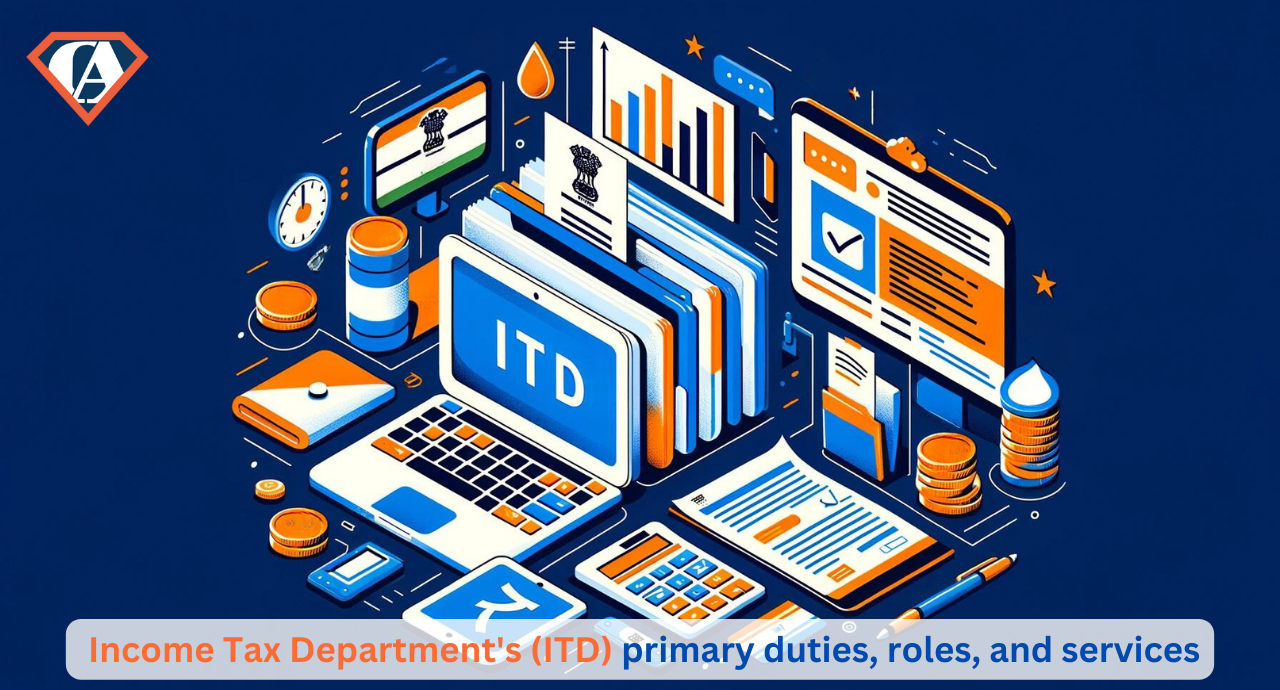Income Tax Department's (ITD) primary duties, roles, and services


The Income Tax Department (ITD) of India plays a pivotal role in the nation's economic framework, managing the collection and administration of direct taxes. This blog delves into the primary duties, roles, and services of the ITD, shedding light on its importance in shaping India's fiscal policies and ensuring the financial health of the country.
The ITD is entrusted with several critical duties:
These duties are fundamental to maintaining the country's tax infrastructure and facilitating national development.
The Income Tax Department (ITD) fulfills several vital roles within India's fiscal system:
The ITD provides a wide range of services to facilitate taxpayer compliance and ease the taxation process:
In recent years, the ITD has launched several digital initiatives aimed at simplifying the tax compliance process:
The ITD also plays a critical role in ensuring compliance with tax laws and enforcing them:
The Income Tax Department's (ITD) primary duties, roles, and services are integral to India's economic stability and growth. By ensuring compliance with tax laws, providing essential services to taxpayers, and embracing digital initiatives, the ITD significantly contributes to the nation's fiscal health. These efforts not only aid in efficient tax collection but also in building a transparent and taxpayer-friendly environment.
A1: The main responsibility of the ITD is to collect direct taxes, enforce tax laws, and ensure compliance with the Income Tax Act, contributing to the nation's revenue.
A2: Taxpayers can file their income tax returns online through the e-filing portal provided by the ITD or seek assistance from authorized tax return preparers.
A3: The ITD offers several digital services, including e-filing of tax returns, Aadhaar-PAN linking, e-assessment, digital communication for notices, and an online grievance redressal system.
A4: The ITD handles tax evasion through rigorous audits, investigations, and raids on suspected evaders. It also imposes penalties and prosecutes cases of tax evasion to ensure compliance.
A5: Yes, the ITD provides a grievance redressal mechanism through which taxpayers can submit their grievances online or contact the taxpayer services for assistance.
A6: Yes, the ITD conducts awareness programs, publishes educational materials, and maintains a helpdesk to educate taxpayers about their rights and responsibilities.
A7: The ITD has introduced several measures for taxpayer convenience, including simplifying tax return forms, enabling electronic transactions, and offering pre-filled tax return forms to reduce errors and save time.

|
Essential LLP Registration Documents: A Complete Checklist for Entrepreneurs Author: Rahul Singh 04 Apr, 2024
|
Get inspired by these stories.